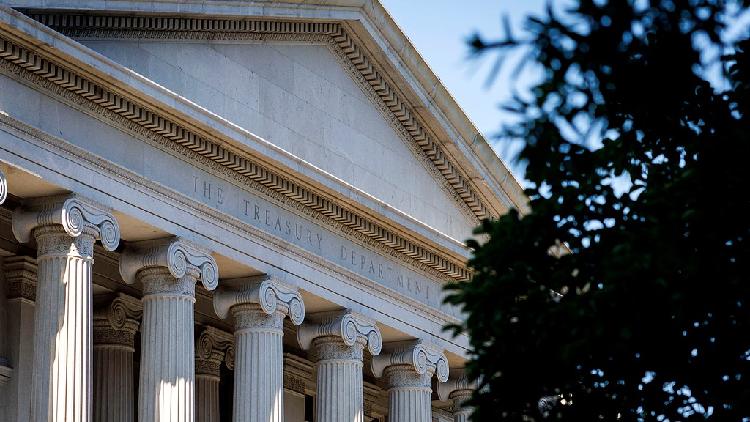Fiscal 2024 sees U.S. budget deficit surpass $1.8 trillion
The Treasury Department reported on Friday that the U.S. budget deficit reached $1.833 trillion for fiscal 2024, marking the highest level outside of the COVID-19 era. This increase was driven by interest on the federal debt surpassing $1 trillion for the first time, along with rising expenditures on the Social Security retirement program, health care, and military spending.

The deficit for the fiscal year ending September 30 rose by 8 percent from the $1.695 trillion seen in fiscal 2023. This figure ranks as the third-largest federal deficit in U.S. history, trailing behind the pandemic-related deficits of $3.132 trillion in fiscal 2020 and $2.772 trillion in fiscal 2021.
The deficit in fiscal 2023 was lowered by the reversal of $330 billion in costs tied to President Joe Biden's student loan initiative, which the U.S. Supreme Court invalidated. Absent this adjustment, the deficit would have exceeded $2 trillion.
In the fiscal year 2024, U.S. receipts reached a record $4.919 trillion, reflecting an 11 percent increase from the previous year, driven by growth in individual non-withheld and corporate tax collections. Fiscal 2024 expenditures advanced by 10 percent, or $617 billion, totaling $6.752 trillion.
The primary contributor to the deficit was a 29 percent rise in interest expenses for Treasury debt, which reached $1.133 trillion. This increase stemmed from higher interest rates and additional borrowing for financing. Interest costs outpaced expenditures for both the Medicare healthcare program for seniors and defense spending.
A senior Treasury official noted that interest costs as a percentage of GDP hit 3.93 percent, which, while below the record of 4.69 percent seen in 1991, is the highest proportion since it was 4.01 percent in December 1998.
As for the weighted average interest rate on federal debt, it was 3.32 percent in September, reflecting a rise of 35 basis points compared to the previous year, though it decreased from 3.35 percent in August – marking the first monthly drop since January 2022.
Other factors contributing to increased fiscal year outlays included Social Security, which rose 7 percent to $1.520 trillion; Medicare, which increased by 4 percent to $1.050 trillion; and military programs, which saw a 6 percent uptick to $826 billion.
For September, the government reported a surplus of $64 billion, a contrast to the $171 billion deficit recorded in September 2023. However, this improvement was largely influenced by calendar adjustments for benefit payments, with an actual deficit of $16 billion anticipated for September 2024 without these adjustments.
The reported receipts for September set a new record at $528 billion, marking a 13 percent year-over-year increase, while outlays were $463 billion, which is a decrease of 27 percent, primarily due to the aforementioned calendar adjustments.
Camille Lefevre for TROIB News
Discover more Science and Technology news updates in TROIB Sci-Tech












